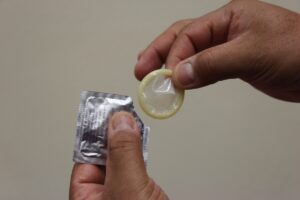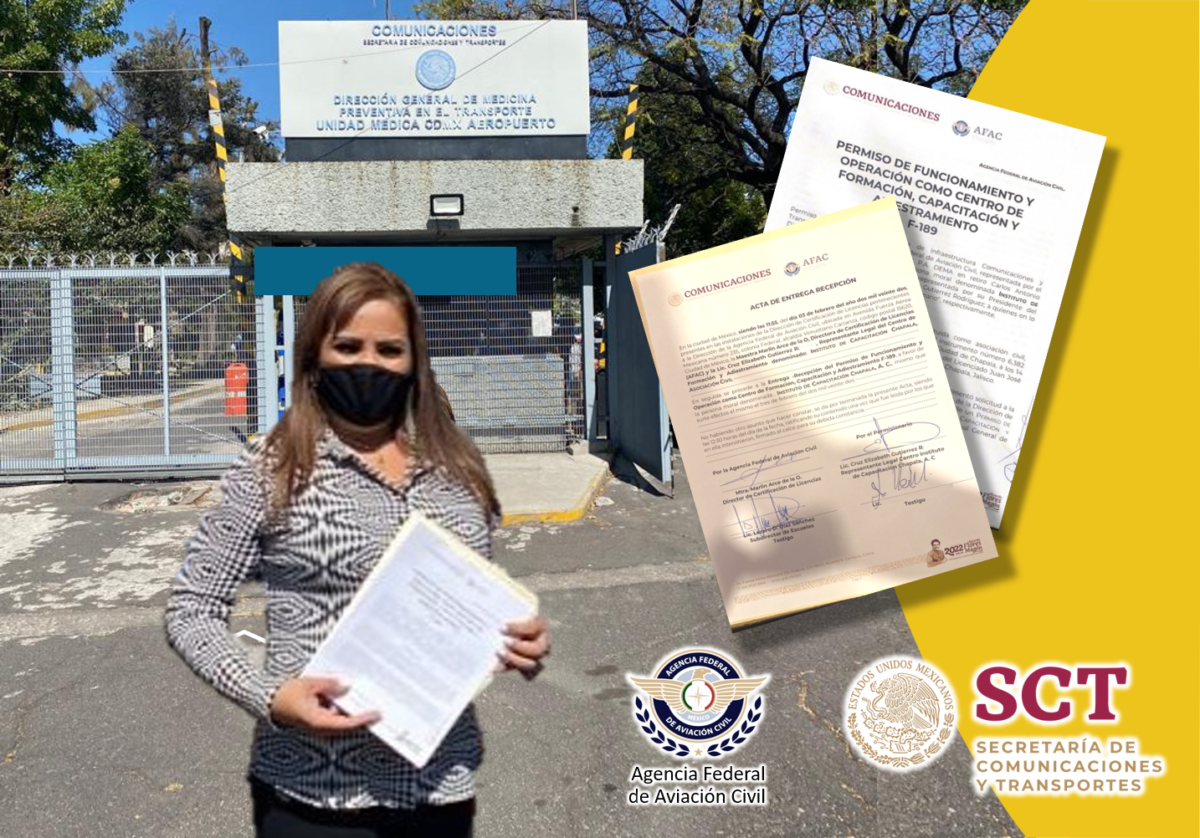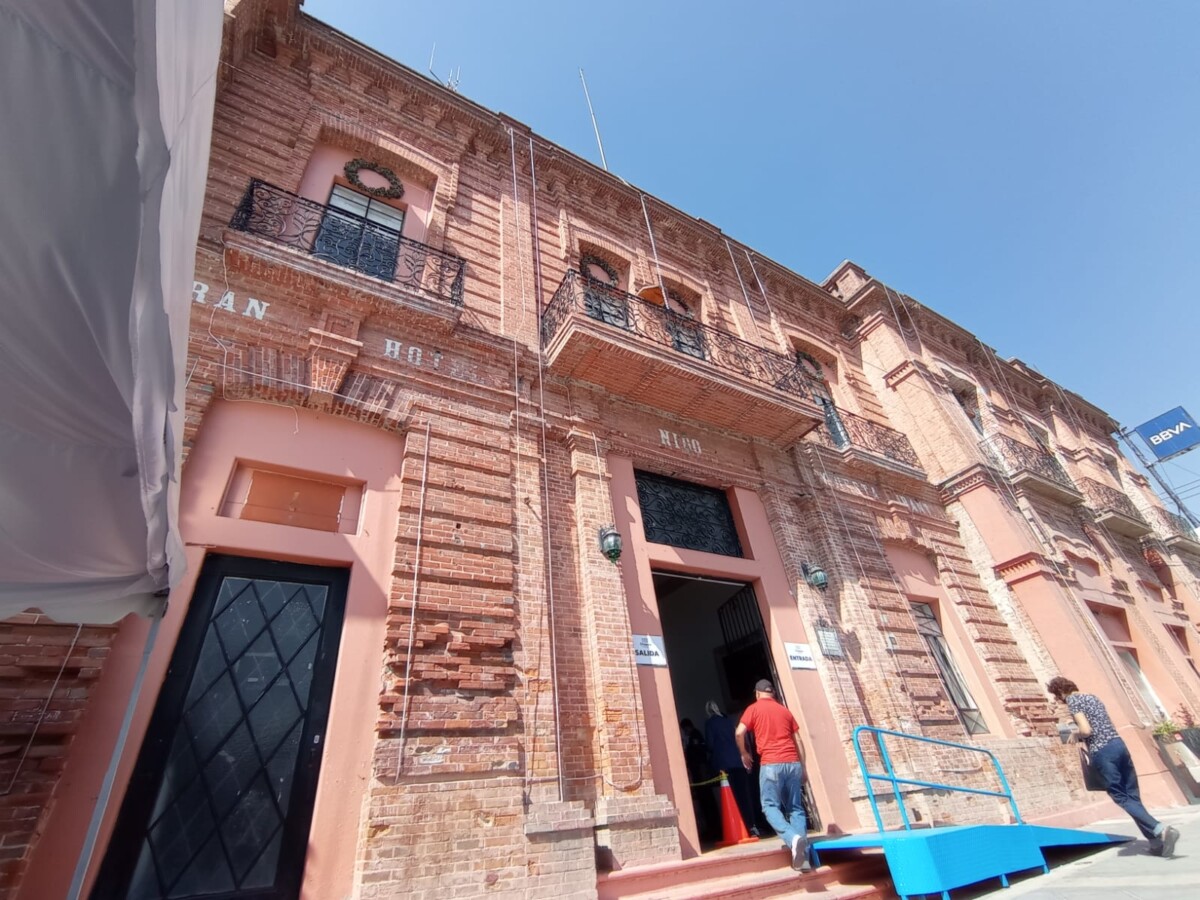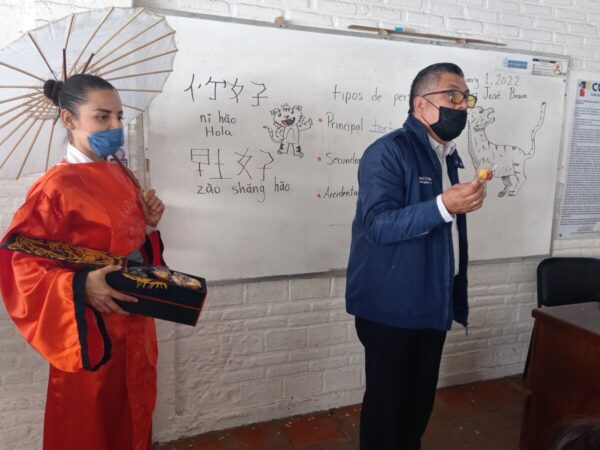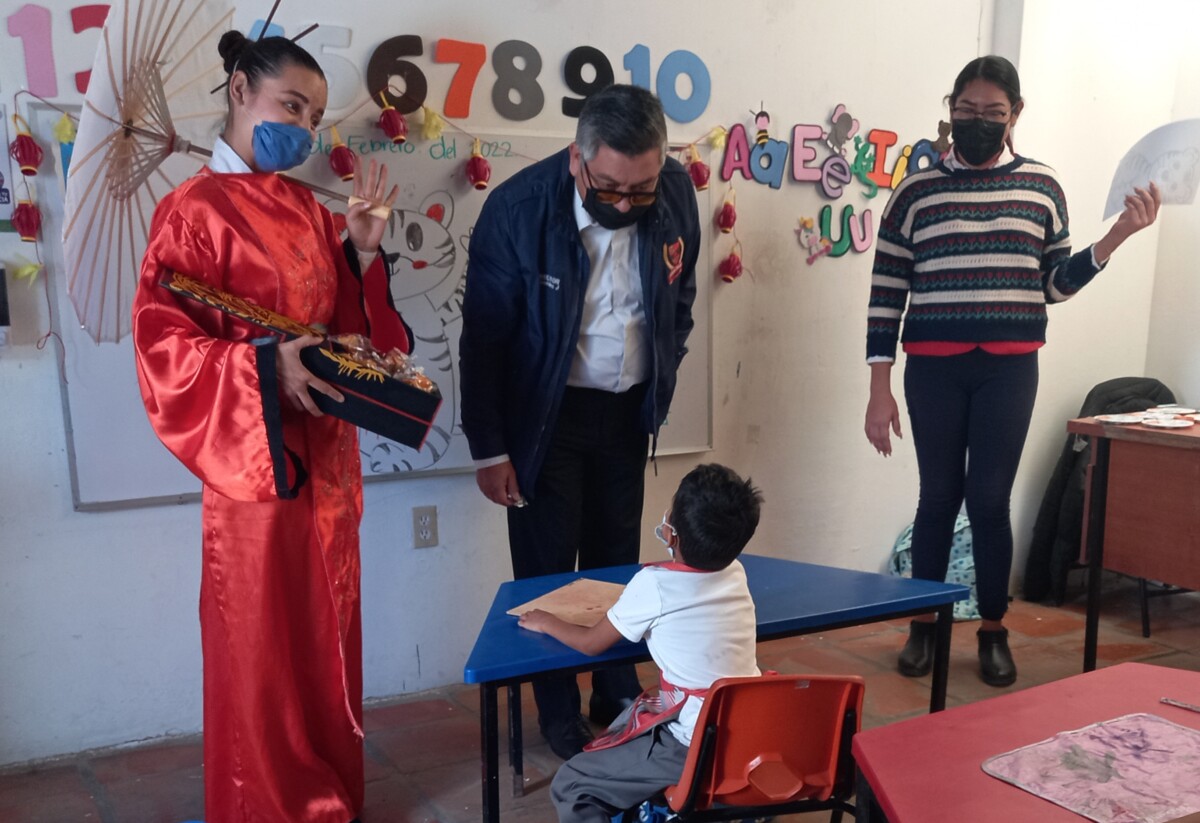educacion
Recomienda SSJ el uso del condón para evitar enfermedades y embarazos no deseados
Los preservativos, tienen una barrera de protección por arriba del 90% en el caso de los condones masculinos y hasta del 85% en el caso de los condones femeninos.
Redacción. – Este 14 de febrero, sin condón no hay amor. Con motivo del Día Internacional del Condón, que se conmemora en México desde el año 2012 cada 13 de febrero, la Secretaría de Salud Jalisco (SSJ), invita a la población a optar por el uso del preservativo.
El condón es el mecanismo de barrera número uno para la prevención para evitar, tanto infecciones de transmisiones de infección sexual (ITS), entre ellas VIH-sida, como embarazos no deseados o no planeados. Su uso correcto lo hace efectivo, seguro y un garante de la salud sexual y reproductiva.
“Dentro de las infecciones de trasmisión sexual podemos evitar clamidias, gonorreas, sífilis, herpes y otras variantes de los agentes que producen estas enfermedades y al decir agentes me refiero al mecanismo que produce estas infecciones”, informó en entrevista el secretario técnico del Consejo Estatal para la Prevención del Sida en Jalisco (Coesida), Luis Alberto Ruíz Mora.
Independientemente del material con el cual están fabricados -látex o poliuretano-, los preservativos, tienen una barrera de protección por arriba del 90 por ciento en el caso de los condones masculinos y hasta del 85 por ciento en el caso de los condones femeninos utilizándolos de forma adecuada, resaltó el especialista.
“El condón sigue siendo el mecanismo de barrera por excelencia y forma parte de las estrategias de prevención combinada que es el tomar medicamentos para prevenir VIH y algunas hepatitis”, informó el especialista, tras recordar que hoy en día el VIH es una infección no curable, que se controla, pero hay otras infecciones que también pueden poner el riesgo la salud de las personas. “La gonorrea, por ejemplo, puede desencadenar la artritis incapacitante si no hay un diagnóstico oportuno”, precisó el secretario técnico del Coesida.
Por otra parte, a diferencia de otros métodos de planificación familiar, el preservativo no presenta reacciones adversas, como sí llega a suceder con otros métodos de anticoncepción que alteran el ciclo menstrual de las mujeres.
“En las estrategias que fomentamos, es que el condón se debe convertir en parte de la relación sexual, parte del placer, si nosotros empezamos a permear toda esta información de que el preservativo forma parte del ejercicio placentero de la sexualidad, evidentemente los mitos y tabúes de que ‘la sensación no es la misma’, podremos erradicarlos”, indicó Ruíz Mora.
Es importante recordar que los preservativos se proporcionan a la población de forma gratuita en los “Servicios Amigables” y de planificación familiar en centros de salud del estado; además se entregan en los 49 Comités Municipales de Prevención del Sida (Comusidas); en hospitales de segundo y tercer nivel, y a través en organismos de la sociedad civil, además de otras instituciones como escuelas de educación media y superior y por supuesto en las instalaciones del Coesida.
Certifica la AFAC y SCT la carrera de Sobrecargo de Aviación del Octavio Paz
La rectora del CUOP, Elizabeth Gutiérrez, con el permiso de funcionamiento y operación como centro de capacitación y adiestramiento en Sobrecargo de Aviación afuera de las oficinas de SCT.
Redacción. – La carrera de Sobrecargo de Aviación que imparte el Campus Universitario Octavio Paz (CUOP) fue certificada y reconocida por la Agencia Federal de Aviación Civil (AFAC) y Secretaría de Comunicaciones y Transporte (SCT).
La rectora del CUOP, Elizabeth Gutiérrez recibió el permiso de funcionamiento y operación como centro de capacitación y adiestramiento F-189, en áreas de la aeronáutica, para personal aéreo, especializándose en Sobrecargo de Aviación, de manos de la Directora de Certificación de licencia de la AFAC, Marlín Arce de la O.

La rectora del CUOP, Elizabeth Gutiérrez y la Directora de Certificación de licencia de la AFAC, Marlín Arce de la O durante la firma de la certificación.
“De esta forma el CUOP, se consolida como la institución educativa en la Ribera de Chapala con el mayor número de reconocimientos oficiales para la impartición de educación en diversos niveles y cursos académico”, compartió la institución educativa a través de sus redes sociales.
Invita Secretaría de Salud Jalisco a cuidar la salud bucal
La SSJ cuenta con 431 odontólogos de base, contrato y prestadores de servicio social distribuidos en todo el Estado. Foto: SSJ.
Redacción.- En la conmemoración del Día del Odontólogo, celebrado el nueve de febrero, la Secretaría de Salud Jalisco (SSJ) invitó a la población en general a cuidar de su salud bucal, así como a realizarse chequeos periódicos.
La SSJ informó que en México y en todo el mundo, las caries en los dientes permanentes encabezan la lista de enfermedades más comunes. En Jalisco el 90 por ciento de la población en general la padece.
“La caries y otros padecimientos de la boca no sólo afectan directamente la salud bucal, sino que también pueden tener repercusiones sobre la salud general… la salud bucal es parte importante en la salud integral del individuo”, indicó la coordinadora estatal del Programa de Salud Bucal del OPD Servicios de Salud Jalisco, Cecilia Hernández Pérez.
La falta de aseo bucal provoca caries y enfermedades periodontales como la gingivitis, la cual, de no atenderse avanza a una periodontitis o periodontósis, causando la pérdida de tejidos de soporte dentario y, por lo tanto, de piezas dentales.
La especialista agregó que la pérdida de dientes en edades avanzadas afecta la capacidad para masticar y puede conducir a la desnutrición. Las infecciones dentales y las bacterias en la boca se asocian con artritis y endocarditis infecciosas, así como un mayor riesgo de neumonía. Mientras que las enfermedades de las encías como gingivitis o periodontitis se relacionan con mayor riesgo de enfermedades cardiovasculares, partos prematuros y bajo peso al nacer.
Por todo ello, en el Día del Odontólogo que se conmemora cada 9 de febrero, la SSJ, reconoció la labor de las y los profesionales en Odontología e invitó a la población a cuidar su salud bucal.
“Queremos hacer extensiva una felicitación a todos los odontólogos, reconocemos su trabajo, esfuerzo y dedicación que emplean día a día en favor de la salud bucal de los jaliscienses, y también hacemos una distinción muy especial al trabajo conjunto que realizamos el sector salud, los colegios odontológicos y también las universidades”, expresó la funcionaria.
La SSJ cuenta con el Programa de Salud Bucal, cuya misión es reducir las enfermedades bucodentales en la población jalisciense, a través de la promoción, prevención, limitación del daño y rehabilitación. Los cinco factores de riesgo son el flujo salival, la acidez de la boca, el control de la placa bacteriana, la posición y anatomía de dientes y los traumatismos dentales.
Actualmente la SSJ cuenta con 431 odontólogos de base, contrato y prestadores de servicio social distribuidos en todo el Estado.
DECÁLOGO DE LA SALUD BUCAL
- Aliméntate bien con productos naturales.
- Cepilla tus dientes después de cada comida.
- Utiliza el hilo dental después del cepillado.
- Visita al dentista cada seis meses.
- Consume con moderación dulces y refrescos, al terminar cepíllate los dientes.
- Evita hábitos nocivos como morder lápices o destapar refrescos con los dientes.
- Evita el uso de chupones, succionar el dedo, chuparse los labios, etcétera.
- Evita el uso del biberón.
- Protege tus dientes con fluoruro (infórmate con tu dentista).
- Identifica la placa dentobacteriana utilizando la pastilla reveladora o, en su defecto, con jugo de betabel o agua de jamaica concentrada.
Opinion: Lakeside health and wellness
Lety Trejo accompanied by her pets.
By: Leticia Trejo
In the past, the recommendation to be healthy was “exercise and eat healthy.” Health and Wellness specialists now recognize this formula is not enough because it leaves out the Mental/Emotional Health to achieve a proper balance. In reality, at a very deep level, what we are all looking for is to live longer. And we have achieved it – we are managing to live longer. What we are not achieving is longevity with good quality of life. We slowly wear out and deteriorate from the age of 50. We lose mobility, agility, the refinement of the senses; we become deaf, we lose our sight and very sadly we lose our memory and sanity.
But this is not the case everywhere in the world. There are some places where people live between 100 and 110 years with excellent quality of life. In these areas there are no chronic degenerative diseases such as diabetes, hypertension, Alzheimer’s or cancer. Sardinia, Italy; Okinawa, Japan; Loma Linda, California; Nicoya Peninsula, Costa Rica; and Icaria, Greece, are the strategic places that report this healthy longevity.
This wonderful discovery has been made by journalist Dan Buettner, a former New York Times bestselling author and Emmy Award-winning journalist and producer. One of Dan’s passions was breaking Guinness World Records, so he decided to cycle from Alaska to Patagonia, and on this trip he discovered these places. He requested support from National Geographic to invest in his research. He invited doctors in anthropology and other specialties to document the motives, customs, habits and lifestyle these people follow. Each place has its own characteristics, but there are some very special coincidences.
First, family is the most important thing. If there is any quarrel they get together to solve it, avoiding rancor and hatred between relatives. Second, the circle of close friends is very relevant. Having friends who support each other in all situations that arise in life. Third, the community is totally collaborative, making important decisions together about their territory and the solidarity and altruism they practice. Fourth, they sow, grow and consume their own food – are no fast food or industrialized food places. Finally, they do not smoke.
It is easy to appreciate that social and community coexistence is key to a good state of health – physically, emotionally and spiritually. Dan Buettner delves into this interesting topic in his book The Blue Zones. He includes the diets these people follow, some recipes and more tips to have an excellent quality of life.
If your goal, dear reader, is greater longevity and a good quality of life, now you have a scientific and proven reference on how you can achieve it. Changes do not happen overnight. Be patient, love the process and rejoice in the small or big steps you achieve.
Translated by Mike Rogers
After multiple requests, trees at an Ajijic elementary school are finally pruned
Branch debris being removed by students of the Irene Robledo school. Photo: Fredi Díaz.
Sofia Medeles.- After two branches fell because of the lack of maintenance on dry trees, workers of the Ajijic delegation finally pruned the trees, as they posed a risk to students and staff of the Francisco Márquez/Irene Robledo school.
The fallen branch from one of the trees on January 3 was the second incident of this type. The principal of the afternoon shift, Fredi Díaz, commented that for approximately four years he has been requesting the help of several municipal authorities to prune the trees that could represent a risk, without any response.
«This last time the branch fell, in the same area, I did not even bother contacting the Civil Protection, or any other authority, since they previously did not give us support to remove it. It was better to ask for help from the parents and some students, and we did what we could,» said Díaz.
The person in charge of the office, Maximiliano Macías Arceo, together with the delegation staff, decided to take action and prune the dry tree that caused the incident, as well as some others that presented a risk.
«The danger from this tree has been removed, but we will continue to prune the others. We have also received reports of a dry guava tree, several ficus trees that need maintenance, as well as pruning of the large trees, which can represent a great risk. In the next few weeks we will continue with this work,» said Macías Arceo.
For his part, the principal of the elementary school commented that he hopes that they really will continue with the work, since there are strong winds in the area that can affect the dry or older trees, causing accidents.
A similar accident occurred on August 19, 2021, when a eucalyptus tree, which was dry, fell into the facilities from outside the property, causing damage to the cyclone mesh.
This fact was ignored by the authorities at the time. Civil Protection, Fire Department and Parks and Gardens were contacted to ask for help, but no response was received from any of them.
After the event, at least two official letters were sent to the delegation to request help, and it was not until recently that they were given any attention.
Translated by Colleen Beery
The intimate pleasure of knowing that you love yourself
By Leticia Trejo
Although the title of this article invites you to think that I will write about the joy of sexual pleasure, I regret to inform you that this is not the case. The pleasure of knowing that you love yourself has to do with those little flashes of happiness when you find yourself making good decisions for your health. They may be only brief seconds, but they are full of pride. Imagine, you are in a restaurant and the waiter asks you, what are you going to drink; thoughts of flavors that explode in your mouth like the taste of sugar in a cola, or the creamy and bubbly texture of a rich craft beer quickly go through your mind, but for some reason out of your mouth comes a «I’d like a glass of water without ice for me»: I’d like a glass of water without ice, please. The sky is shining, the day is brighter and you didn’t know why, but when they bring you the glass of water you enjoy every sip as if it were the first time you drink this precious liquid.
One of the signs that you are appreciating yourself more is precisely this kind of decision. You find yourself preparing a salad for lunch, you buy a box of chocolates and it lasts you more than three months, you even forget that there is chocolate in your pantry, the bread hardens in the cupboard and the tortillas become hard in the refrigerator. The anxiety to eat everything has diminished, it has become small, and your self-esteem has become bigger. This is not a fact that happens overnight, in reality these small changes have been developing through a deeper state of consciousness, which is being created with small daily actions. For example: before brushing your teeth, it was a mechanical and unconscious fact where you did not realize that this brushing lasted only 30 seconds, when you make it conscious you stay in front of the mirror of your bathroom feeling where the brush passes, you stay more seconds in each area of your mouth, you repeat the brushing, you open your mouth more, now you also brush your tongue until you feel that the cleaning has reached all the spaces of your mouth and the feeling of pleasure for feeling your teeth clean represents small flashes of happiness. Yes, happiness.
Taking care of our health can be simpler than it seems, and more satisfying than we want to admit, it has nothing to do with spending a few thousand pesos in sophisticated medical studies, MRIs and scientific experts that give us approval and attest to our well-being. The intimate pleasure of knowing that you love yourself has more to do with what you do for yourself on a daily basis. Smiling at yourself in front of the mirror, dancing alone in your room, cleaning your shoes, washing your clothes, reorganizing your closet, going to the market to buy for yourself what you are going to cook later, buying a comfortable pillow, changing your sheets, and so on. Happiness is hidden in each of these actions that you make of you for you.
«People look with the expectation that eventually they will be happy, but you cannot find true happiness by looking into the future,» said Eckart Tolle which reinforces the idea that it is presence, YOUR presence in every detail of the actions you perform that will make you notice the care, love and gentleness with which you treat yourself. Then you will stop blaming the other, resentment will settle into the corner where it should stay, and health, well-being, and happiness will find a permanent home in your life.
ITEI orders Chapala to publish personal information of officials on its website
Facade of Chapala’s City Hall. Photo: Mr. Arturo Ortega.
Editor. – The Institute of Transparency and Public Information and Protection of Personal Data of the State of Jalisco (ITEI) ordered the Municipality of Chapala to publish in its internet portal biographical information on officials and information on administrative penalties.
During the Third Ordinary Session, the Plenary of the Council of the ITEI required the City Council to publish the information as required by Article 8, point 1, section V in accordance with file 514/2021 of the transparency appeal.
Since “no data was located in the reference section” of the Municipal Government’s website, the information must be published or updated in the next 15 days. If the information does not exist, the provisions of the transparency law must be followed.
The ITEI Board determined that the Municipality had already fulfilled the requests for payroll, vehicle fleet and internal regulation (information in files 2796/2021, 526/2021, 3316/2021 and 979/2021).
In November 2021, the ITEI fined Víctor Merino de Jesús, the head of the Transparency Unit of Chapala during the 2018 – 2021 administration, for not delivering complete information regarding internal regulations, the Municipal Development Plan 2018 -2021 and the Social Prevention of the municipality.
Translated by Elisabeth Shields
Parents complain about the Aurelia Flores kindergarten because of facilities in poor condition
The provisional entrance to the kindergarten is through the Cruz Azul sports field.
Sofía Medeles – The construction works at the Auditorium of La Ribera, in Ajijic, unleashed complaints from parents of the students of the Aurelia Flores kindergarten, located next to the auditorium, due to the blockage of the entrance and the deplorable state of its infrastructure.
The first of the problems mentioned was the lack of an entrance, since the beginning of the school year in August 2021. When returning to classes, after the pandemic, parents discovered that the main entrance, located next to the Auditorio de la Ribera, was closed due to construction, so the provisional entrance is through the Cruz Azul sports field.
«There are many problems with the entrance. To begin with, the people from the field ask us not to cross, and to go around the field, so that the grass is not damaged. This causes, for example, that in times of rain, our path is flooded, and both the children and the parents get wet. For us there is no problem, we go home and change, but the children get wet feet and get sick,» mentioned one of the mothers interviewed.
In addition, the mothers denounced another group of shortcomings of the kindergarten, among them walls with damages that present a risk of falling; several bathrooms out of service – they reported that there are only two working; awnings in bad condition; and the lack of a custodian.
«Since we started the (school) cycle, there hasn’t been a custodian, because the previous one resigned, so among the parents we agreed to pay someone to do the cleaning. But we couldn’t arrange it. They say that one is going to come in, but this shows that neither the State Government nor the City Hall are looking at the kindergarten’s deficiencies,” added another of the mothers.
For her part, the president of the parents’ committee, Lucía Padilla, assured that the school’s director has already been in charge of sending an endless number of letters to ask for resources and personnel, but the authorities limit themselves to answering in a positive manner and the petitions never arrive.
«We are going back to school with many deficiencies, and it was two years in which the kindergarten was abandoned. Not only this one, but several schools are in bad condition. The Secretary of Education has neglected the schools. Not only the parents, but also the director is desperate for an answer, and above all, actions,» stated Lucía.
Regarding the entrance, Lucía commented that, although the provisional entrance is annoying, they prefer that to the children entering through the main entrance, since due to the work being done – which the workers themselves told them has no end date – an accident could occur that could harm the students.
Finally, Lucia commented that there is no way to obtain resources, since the pandemic situation prevents them from holding events. «How can there be a work of considerable investment, next to a kindergarten that is in poor condition, and that school not receive attention, even if it is just a little bit?” she questioned. “The community should know that we are going to try to improve the school, but it cannot be done without everyone’s help.”
Translated by Sandy Britton
The first inclusive sports team in Chapala is established
In blue, CODE Jalisco representative, next to her Tito López and his wife, a team volunteer. On the right, Francisco Gutiérrez, director of COMUDE (Municipal Sports Council) Chapala and a member of the ‘Chapala Inclusive Team’.
Jazmín Stengel (Chapala).- Well-known athlete Ernesto López González fulfilled a promise with the formation of the first «inclusive sports team» for people with disabilities in the municipality of Chapala.
Ernesto, or “Tito” as he is better known by his friends, announced at a press conference on January 24 in the La Cristianía Park auditorium, the creation of his long-awaited sports club for people with disabilities, endorsed by the State Council for the Promotion of Sports (CODE) Jalisco.
The purpose of this club is to motivate people with disabilities to «be encouraged to get out of their homes and join us,» said Tito Lopez. Organizers will knock on doors in each neighborhood to invite those who qualify. Open registration will be at the offices of COMUDE Chapala, Plaza de Toros, at Privada Francisco I. Madero 507, Chapala.
«People with disabilities tend to enter a state of comfort when other people limit them, in addition to the lack of adapted recreational spaces in the municipality,» explained López González.
The Municipality of Chapala pledged to provide transportation for the athletes to get to future competitions, as well as provide needed items. Another promise is to replace the current athletic track in La Cristianía Park with a professional one with accommodations for people with disabilities.
At present, there is a team of approximately 15 people who will compete in athletics for the blind, soccer for amputees, and cyclists with hand pedals and manual propulsion chairs. Swimming will be added once the pools of the Parque de La Cristianía are rehabilitated.
Since the athletes are still beginners and need to be trained, the club will start with purely recreational activities, such as internal and inter-municipal competitions. Once the athletes are ready, they will look for ways to promote their sporting careers through CODE Jalisco programs. Resources for the team are expected to be obtained through private donations or foundations.
Tito assured that he wanted to «help teach them to fish, …we want them to be self-sufficient. But, for that, we need them not to hide», said the athletics coach who wants to see his disciples at the highest levels of Mexican sport.
Translated by Nita Rudy
Publinota: Celebró el CUOP el inicio del año Chino
El director del CUOP, Martín Morales Juárez entregó galletas de la fortuna al alumnado. Foto: CUOP.
Redacción. –El día primero de febrero, se celebra el Año Nuevo Chino «Año del Tigre», por eso, en el Centro Universitario Octavio Paz (CUOP) brindaron a sus alumnos una pequeña sorpresa, con frases en chino, con la intención de que los alumnos interactúen y conozcan otras culturas.
Al igual, se les obsequió una galleta de la fortuna como símbolo de la cultura china y del aprecio que los profesores hacia el alumnado.
Inscribe a tus hijos al CUOP para que vivan esta y otras experiencias: (376) 765 33 55 y 331 843 43 80.
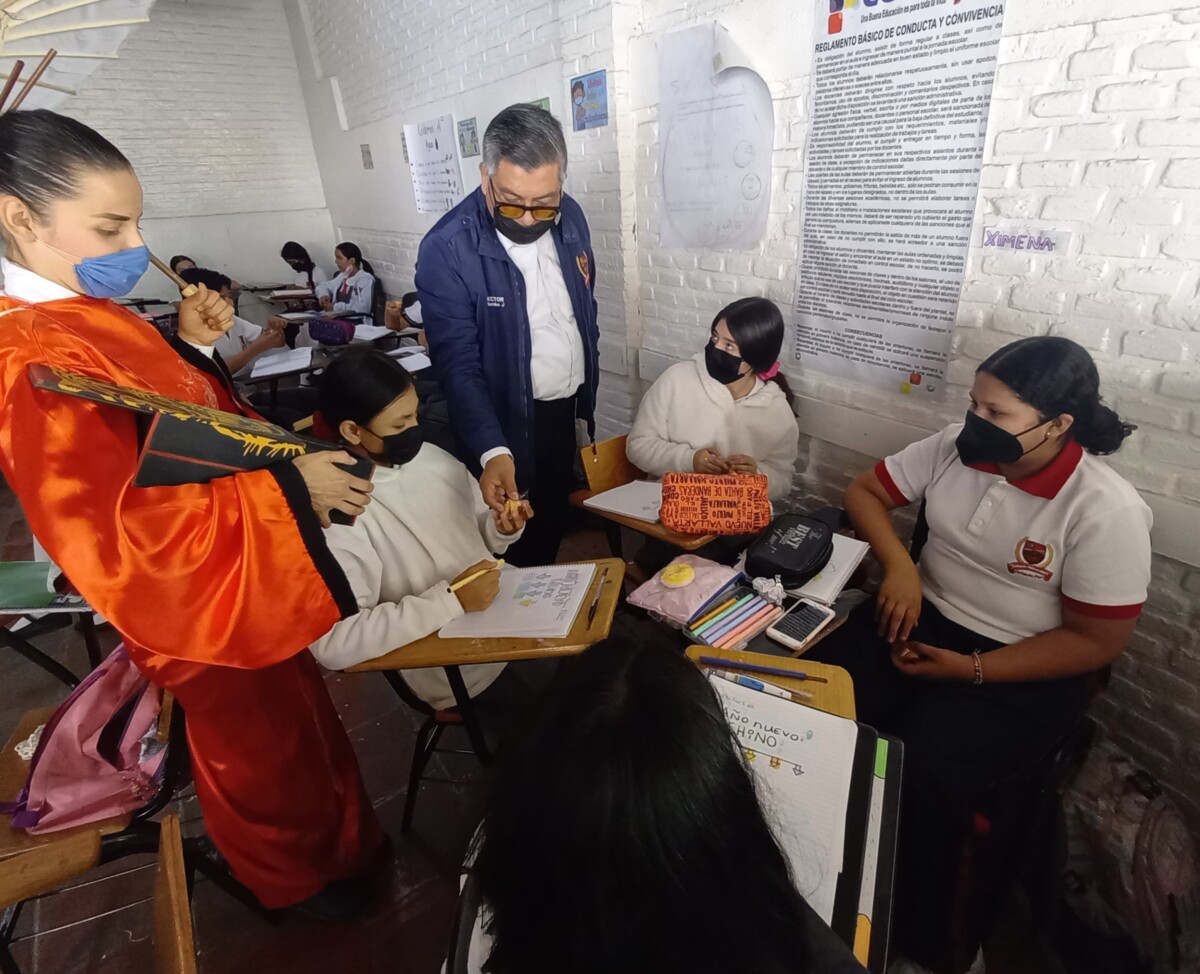
El director del CUOP, Martín Morales Juárez regaló a los alumnos galletas de la fortuna, en el inicio del “Año del Tigre”. Foto: CUOP.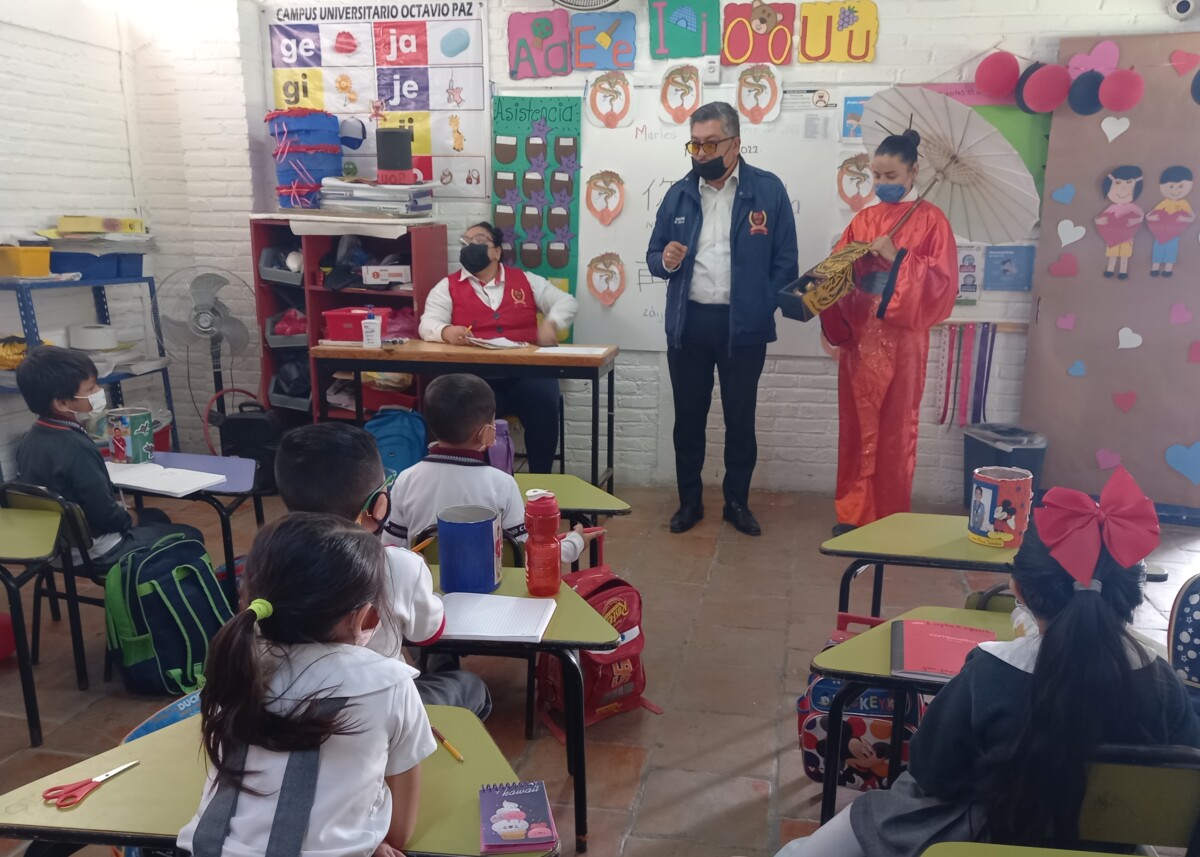
La celebración involucró a todos los alumnos del plantel.
© 2016. Todos los derechos reservados. Semanario de la Ribera de Chapala
